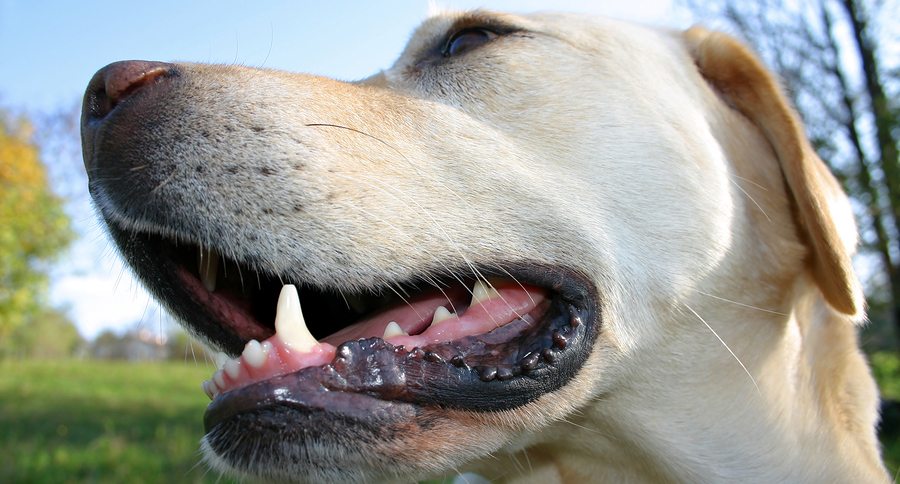Dental disease is the number one reason pets end up at the vet!
February marks National Pet Dental Health Month and to celebrate, many veterinary clinics offer promotional discounts for pet dental visits. This way, they can raise awareness to the importance of oral pet care.
Too often pet dental care is overlooked, but tartar or dental plaque build-up and poor gum health can cause heart complications, infections, and tooth abscesses. In fact, oral disease is the most commonly treated ailment at veterinary clinics.
Bleeding gums, which can become periodontal disease, are a breeding ground for bacteria and an entry zone into the bloodstream. They create a direct pathway to the heart, leading to heart disease that isn't always reversible. Maintaining clean teeth and gums can prevent multiple health problems.
Healthy dental chew sticks purchased through veterinarians can help teeth stay healthy. Some pets might even let you brush their teeth.
As part of an annual to semi-annual check-up—which all pets should have—a full mouth exam is performed. The veterinarian grades the teeth based on their general appearance, such as color, debris, smell, sharpness, and looseness. Dental problems are noted and a treatment plan is discussed with the pet owner.
While dental treats and a healthy diet might be enough to keep some pet's teeth clean, others might be referred for a full dental. In many veterinary clinics, pets are anesthetized during a dental so that the veterinarian can properly have a look at all of the teeth, clean sufficiently, and perform any dental procedures. This isn't easy work with a wiggly, excitable, or scared pet that isn't sedated!
At times, the vet discovers that teeth have to be removed, and this can be done at the same time as the teeth cleaning, provided that the pet is already under anesthesia.
Signs of dental disease include:
- Bad breath
- Foul odor from mouth
- Yellow or black teeth
- Bleeding gums
- Sensitive mouth
- Loose teeth
- Inflamed or receding gums
- Pawing at the mouth
- Excessive drooling
- Pus, plaque or tartar build-up
- Inappetence
Soft foods don't naturally scrape off plaque like hard foods food, which is why bones and dental sticks can aid in healthy teeth. Breed and genetics can also play a role in oral health.
 Be sure to schedule at least annual visits to your vet so your dog or cat gets its teeth looked at. As you know by now, dental health is vital to overall health!
Be sure to schedule at least annual visits to your vet so your dog or cat gets its teeth looked at. As you know by now, dental health is vital to overall health!
How do you keep your pet's teeth clean? Tell us in the comments below.
WATCH NOW: Zuke's Power Bones Are for Active Dogs





